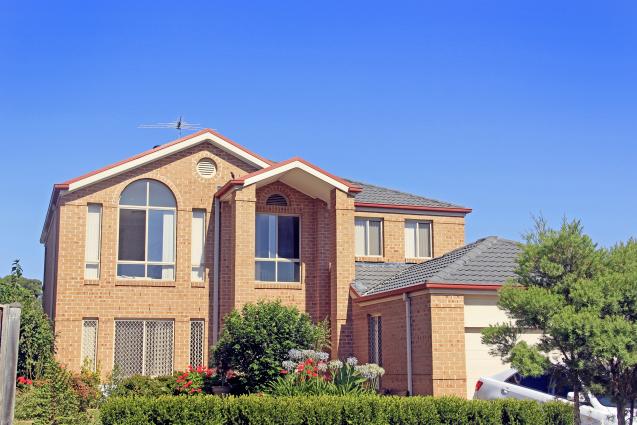
What Is Capital Gains Tax
By McLennan Steege Smith Property Valuations|November 04, 2021
Taxes. Everybody’s favourite subject, right?
However, though thinking about taxes can be mind-numbing, you have to do it if you want to keep more of your hard-earned dollars in your pocket. With the right strategies in place, you can reduce your capital gains tax liability considerably.
What is capital gains tax and how can you lower the amount? Read on to find out!
What Is Capital Gains Tax
You are liable to pay capital gains tax (CGT) when you sell an asset and make a profit from it. These assets include:
Individuals will pay CGT at whatever their marginal rate is. Businesses will pay flat rates of 26 - 30%.
At that rate, any way to reduce that liability will be welcome!
How to Reduce CGT Liability
Though tax evasion is illegal, minimizing your tax liability is not only legal but also smart. Check out a few top strategies here.
1. Offset Gains with Losses
Have you suffered a loss with investments or properties? Keep track of those losses because they can be used to offset capital gains in the future. There is no time limit for how long you can carry forward these losses.
2. Revalue Your Home Before Renting
Planning to rent out your house? Have a capital gains tax valuation done before you do, especially if you’ve lived in your house for many years.
This step will ensure that the capital gains tax will be calculated from the value at the point you started renting out your house — not from when you bought it.
3. Make a Tax-Deductible Super Contribution
Make a super contribution with some or all of the profit from your sold asset. This can reduce or eliminate your capital gains tax burden.
4. Hold Assets Long-Term
Individuals get a 50% break on CGT for assets they sell after holding them for 12 months or longer.
6. Bump Up the Asset Cost Base
CGT is calculated based on the sale price of the asset minus its cost base, which is basically what the asset cost you. This includes the purchase price, cost of improvements, or the costs of buying or selling it (for example, real estate agent fees).
Make sure you include everything that counts toward the asset cost base. The higher the cost base, the lower your capital gains and thus a lower CGT bill.
Pay the Right Amount in Taxes
It can be easy to overpay capital gains tax, but obviously, nobody wants to do that. Keep these strategies in mind to reduce your CGT liability and consult a tax advisor as necessary. It could save you thousands of dollars!
However, though thinking about taxes can be mind-numbing, you have to do it if you want to keep more of your hard-earned dollars in your pocket. With the right strategies in place, you can reduce your capital gains tax liability considerably.
What is capital gains tax and how can you lower the amount? Read on to find out!
What Is Capital Gains Tax
You are liable to pay capital gains tax (CGT) when you sell an asset and make a profit from it. These assets include:
- Real estate property (that is not your primary residence)
- Shares
- Investments
- High-value collectibles (over $10,000)
- Any asset you acquired before the 20th of September, 1985
- Car, motorcycle, or another similar type of vehicle
- The house where you live
- Gambling wins
- Prizes
Individuals will pay CGT at whatever their marginal rate is. Businesses will pay flat rates of 26 - 30%.
At that rate, any way to reduce that liability will be welcome!
How to Reduce CGT Liability
Though tax evasion is illegal, minimizing your tax liability is not only legal but also smart. Check out a few top strategies here.
1. Offset Gains with Losses
Have you suffered a loss with investments or properties? Keep track of those losses because they can be used to offset capital gains in the future. There is no time limit for how long you can carry forward these losses.
2. Revalue Your Home Before Renting
Planning to rent out your house? Have a capital gains tax valuation done before you do, especially if you’ve lived in your house for many years.
This step will ensure that the capital gains tax will be calculated from the value at the point you started renting out your house — not from when you bought it.
3. Make a Tax-Deductible Super Contribution
Make a super contribution with some or all of the profit from your sold asset. This can reduce or eliminate your capital gains tax burden.
4. Hold Assets Long-Term
Individuals get a 50% break on CGT for assets they sell after holding them for 12 months or longer.
6. Bump Up the Asset Cost Base
CGT is calculated based on the sale price of the asset minus its cost base, which is basically what the asset cost you. This includes the purchase price, cost of improvements, or the costs of buying or selling it (for example, real estate agent fees).
Make sure you include everything that counts toward the asset cost base. The higher the cost base, the lower your capital gains and thus a lower CGT bill.
Pay the Right Amount in Taxes
It can be easy to overpay capital gains tax, but obviously, nobody wants to do that. Keep these strategies in mind to reduce your CGT liability and consult a tax advisor as necessary. It could save you thousands of dollars!



